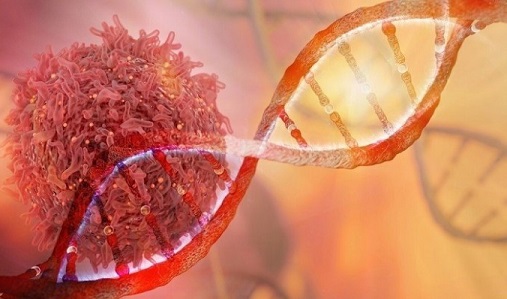Nikhil Prasad Fact checked by:Thailand Medical News Team Jul 08, 2024 9 months, 2 weeks, 4 days, 3 hours, 12 minutes ago
Cancer News: Researchers from the Menzies Institute for Medical Research at the University of Tasmania-Australia, the Fred Hutchinson Cancer Center in Seattle-USA, and the National Human Genome Research Institute at the U.S. National Institutes of Health-USA have uncovered new genetic variants associated with an increased risk of hereditary prostate cancer. This
Cancer News report delves into the study's findings and their implications for genetic screening and treatment.
 New Genetic Risk Factors for Prostate Cancer Discovered
The Study's Scope and Methodology
New Genetic Risk Factors for Prostate Cancer Discovered
The Study's Scope and Methodology
The study focused on identifying rare, inherited variants in DNA damage repair (DDR) genes, which play a significant role in prostate cancer susceptibility. Utilizing whole-genome and whole-exome sequencing data from two independent high-risk familial prostate cancer datasets, researchers analyzed the genetic data of 1963 individuals, including those with familial and sporadic prostate cancer, unaffected relatives, and screened controls.
Key Findings: Novel DDR Gene Variants
The study identified several rare DDR gene variants that are significantly associated with prostate cancer risk. The most notable findings include:
-ERCC3 Variant (rs145201970): Found in both Australian and North American datasets, this variant showed a strong association with prostate cancer risk. ERCC3 is involved in the nucleotide excision repair pathway, crucial for DNA repair.
-BRIP1 Variant (rs4988345): This variant, located in the double-strand break repair pathway gene BRIP1, also demonstrated a significant association with prostate cancer. BRIP1 interacts closely with the well-known BRCA1 gene.
-PARP2 Variant (rs200603922): Identified in the Australian dataset, this variant in the base excision repair pathway gene PARP2 is linked to prostate cancer risk.
-MUTYH Variant (rs36053993): Found in the North American dataset, this variant in the oxidative DNA damage repair gene MUTYH is associated with increased prostate cancer risk.
Implications for Genetic Screening and Treatment
The study’s findings have important implications for genetic screening and targeted treatment strategies for prostate cancer:
-Enhanced Genetic Screening: Identifying these rare DDR gene variants allows for more comprehensive genetic screening in individuals with a family history of prostate cancer. This could lead to earlier detection and intervention, improving patient outcomes.
-Targeted Therapies: The discovery of these variants also supports the use of targeted therapies, such as poly (ADP-ribose) polymerase (PARP) inhibitors, which are effective in cancers with defective DNA repair mechanisms.
Challenges and F
uture Directions
While the study provides valuable insights, it also highlights several challenges and areas for future research:
-Rarity of Variants: The low frequency of these rare variants makes it challenging to conduct large-scale studies and establish statistical significance.
-Clinical Relevance: Further research is needed to determine the clinical significance of these variants and their impact on treatment response and disease prognosis.
-Broader Screening: Expanding genetic screening to include a wider array of DDR genes could uncover additional variants that contribute to prostate cancer risk.
Conclusion
This study adds valuable knowledge to our understanding of prostate cancer-associated DDR genes, paving the way for more effective clinical screening and treatment strategies. The findings underscore the importance of genetic research in identifying high-risk individuals and developing targeted therapies.
The study findings were published in the peer-reviewed journal: Cancers.
For the latest
Cancer News, keep on logging to Thailand Medical News.
Read Also:
https://www.thailandmedical.news/news/purine-protein-s-role-in-prostate-cancer-new-hope-for-understanding-and-treatment
https://www.thailandmedical.news/news/cholesterol-intake-might-influence-early-prostate-cancer-development
